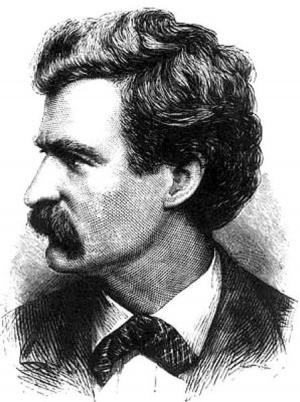| Author: | Ralph Waldo Emerson | ISBN: | 9781465613158 |
| Publisher: | Library of Alexandria | Publication: | March 8, 2015 |
| Imprint: | Language: | English |
| Author: | Ralph Waldo Emerson |
| ISBN: | 9781465613158 |
| Publisher: | Library of Alexandria |
| Publication: | March 8, 2015 |
| Imprint: | |
| Language: | English |
The times, as we say — or the present aspects of our social state, theral Science, Agriculture, Art, Trade, Letters, have their root in an invisible spiritual reality. To appear in these aspects, they must first exist, or have some necessary foundation. Beside all the small reasons we assign, there is a great reason for the existence of every extant fact; a reason which lies grand and immovable, often unsuspected behind it in silence. The Times are the masquerade of the eternities; trivial to the dull, tokens of noble and majestic agents to the wise; the receptacle in which the Past leaves its history; the quarry out of which the genius of to-day is building up the Future. The Times — the nations, manners, institutions, opinions, votes, are to be studied as omens, as sacred leaves, whereon a weighty sense is inscribed, if we have the wit and the love to search it out. Nature itself seems to propound to us this topic, and to invite us to explore the meaning of the conspicuous facts of the day. Everything that is popular, it has been said, deserves the attention of the philosopher: and this for the obvious reason, that although it may not be of any worth in itself, yet it characterizes the people. Here is very good matter to be handled, if we are skilful; an abundance of important practical questions which it behoves us to understand. Let us examine the pretensions of the attacking and defending parties. Here is this great fact of Conservatism, entrenched in its immense redoubts, with Himmaleh for its front, and Atlas for its flank, and Andes for its rear, and the Atlantic and Pacific seas for its ditches and trenches, which has planted its crosses, and crescents, and stars and stripes, and various signs and badges of possession, over every rood of the planet, and says, `I will hold fast; and to whom I will, will I give; and whom I will, will I exclude and starve:’ so says Conservatism; and all the children of men attack the colossus in their youth, and all, or all but a few, bow before it when they are old. A necessity not yet commanded, a negative imposed on the will of man by his condition a deficiency in his force, is the foundation on which it rests. Let this side be fairly stated. Meantime, on the other part, arises Reform, and offers the sentiment of Love as an overmatch to this material might. I wish to consider well this affirmative side, which has a loftier port and reason than heretofore, which encroaches on the other every day, puts it out of countenance, out of reason, and out of temper, and leaves it nothing but silence and possession.
The times, as we say — or the present aspects of our social state, theral Science, Agriculture, Art, Trade, Letters, have their root in an invisible spiritual reality. To appear in these aspects, they must first exist, or have some necessary foundation. Beside all the small reasons we assign, there is a great reason for the existence of every extant fact; a reason which lies grand and immovable, often unsuspected behind it in silence. The Times are the masquerade of the eternities; trivial to the dull, tokens of noble and majestic agents to the wise; the receptacle in which the Past leaves its history; the quarry out of which the genius of to-day is building up the Future. The Times — the nations, manners, institutions, opinions, votes, are to be studied as omens, as sacred leaves, whereon a weighty sense is inscribed, if we have the wit and the love to search it out. Nature itself seems to propound to us this topic, and to invite us to explore the meaning of the conspicuous facts of the day. Everything that is popular, it has been said, deserves the attention of the philosopher: and this for the obvious reason, that although it may not be of any worth in itself, yet it characterizes the people. Here is very good matter to be handled, if we are skilful; an abundance of important practical questions which it behoves us to understand. Let us examine the pretensions of the attacking and defending parties. Here is this great fact of Conservatism, entrenched in its immense redoubts, with Himmaleh for its front, and Atlas for its flank, and Andes for its rear, and the Atlantic and Pacific seas for its ditches and trenches, which has planted its crosses, and crescents, and stars and stripes, and various signs and badges of possession, over every rood of the planet, and says, `I will hold fast; and to whom I will, will I give; and whom I will, will I exclude and starve:’ so says Conservatism; and all the children of men attack the colossus in their youth, and all, or all but a few, bow before it when they are old. A necessity not yet commanded, a negative imposed on the will of man by his condition a deficiency in his force, is the foundation on which it rests. Let this side be fairly stated. Meantime, on the other part, arises Reform, and offers the sentiment of Love as an overmatch to this material might. I wish to consider well this affirmative side, which has a loftier port and reason than heretofore, which encroaches on the other every day, puts it out of countenance, out of reason, and out of temper, and leaves it nothing but silence and possession.















